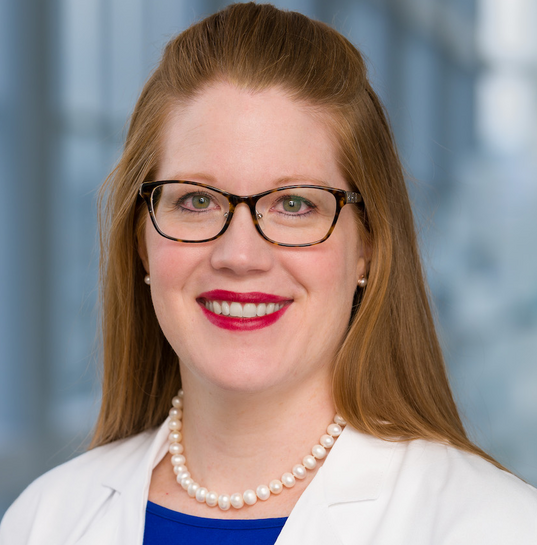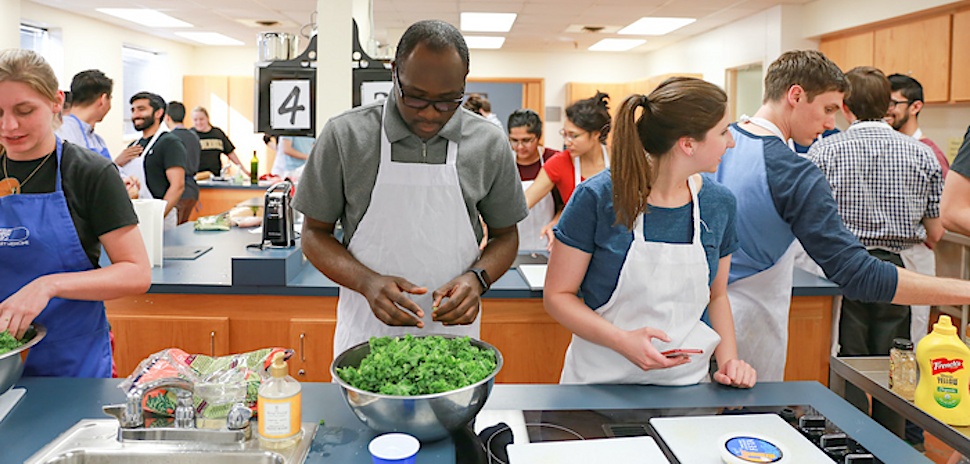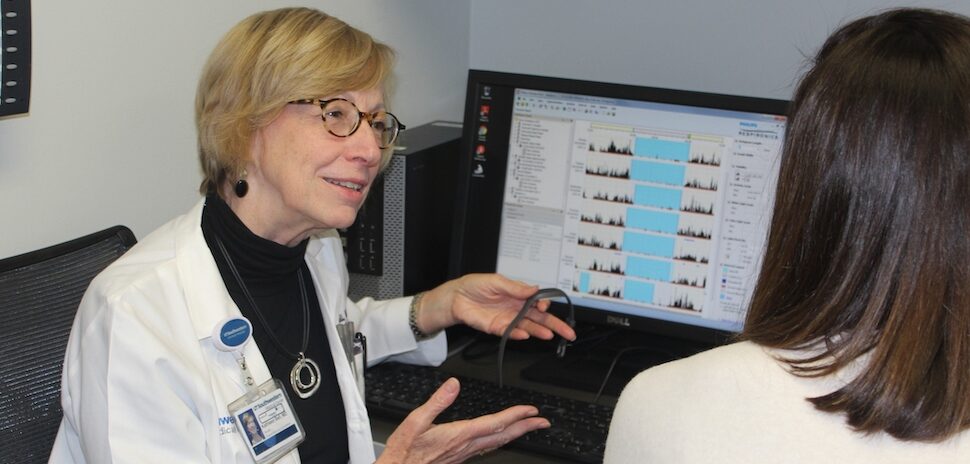“Food is the top risk factor for early death in the U.S., and culinary medicine could transform the problem into the solution.”
Jaclyn Albin, M.D.
Associate Professor of Internal Medicine and Pediatrics and Leader of the Culinary Medicine Program
UT Southwestern
.…on improving nutrition education in an era of unprecedented diet-related health problems.
 From obesity to cardiovascular disease, we live in an era of unprecedented diet-related health problems. But Dr. Albin, who leads the Culinary Medicine program at UT Southwestern, and her team are trying to cook up a solution by reviewing programs at medical schools across the U.S.
From obesity to cardiovascular disease, we live in an era of unprecedented diet-related health problems. But Dr. Albin, who leads the Culinary Medicine program at UT Southwestern, and her team are trying to cook up a solution by reviewing programs at medical schools across the U.S.

Dr. Jaclyn Albin
The review of programs by UT Southwestern researchers has been published in Academic Medicine, the journal of the Association of American Medical Colleges.
The programs use “teaching kitchens” to give health professionals skills that can help patients make healthy dietary changes while enjoying nourishing, accessible, affordable, and delicious food,
“This work is the very first scoping review of medical school-based Culinary Medicine programs in the U.S.,” Albin said in a statement. “We anticipate this to be a pivotal resource for the many medical schools seeking to launch programs and needing a collated literature base as well as information about funding, assessment strategies, and lessons learned.”
From food allergies to IBS, issues have been increasing
Albin notes that the nutrition-disease puzzle has only gotten more difficult lately.
“This has become increasingly complex as more patients face food allergies and intolerances, special dietary or nutritional needs, diseases like irritable bowel syndrome, and much more,” she said.
One solution is culinary medicine—a field where UT Southwestern has been an innovator. Since launching its program in 2015, UTSW’s Culinary Medicine team has taught in kitchens across Dallas-Fort Worth for medical students, residents, fellows, other health professionals, and patients.
The team has recently gone virtual, launching a clinical service line for consultations with other health care providers. More things will launch over the next several months, including group cooking classes and one-on-one visits between patients and registered dietitians.
“I’ve always had a passion for teaching students and patients about nutrition, lifestyle, and other environmental influences on health,” Albin said, and as her program grows, she’s hoping its impact will be felt increasingly in North Texas and beyond.
Other researchers who contributed to the review published in Academic Medicine include first author Courtney Newman and Justin Yan—both UTSW medical students—and Sarah Messiah of the University of Texas School of Public Health.
For more on what’s new and next in North Texas, check out Every Last Word.
![]()
Get on the list.
Dallas Innovates, every day.
Sign up to keep your eye on what’s new and next in Dallas-Fort Worth, every day.






























